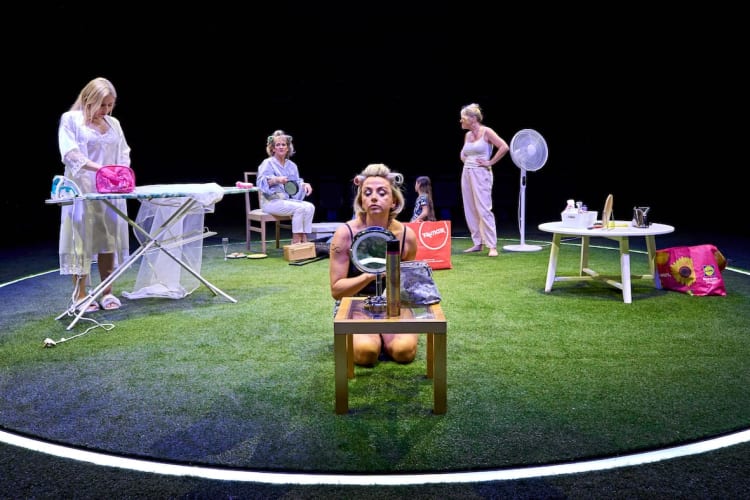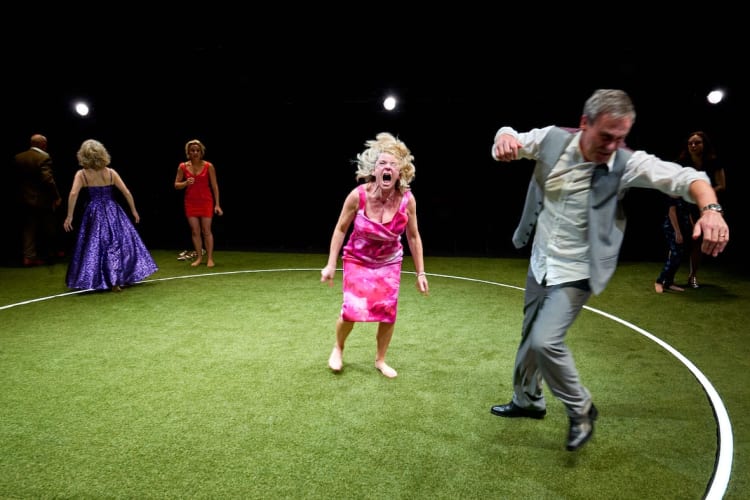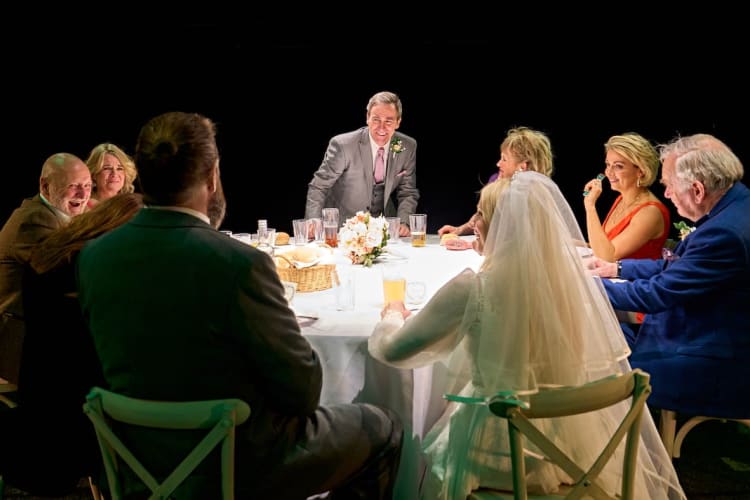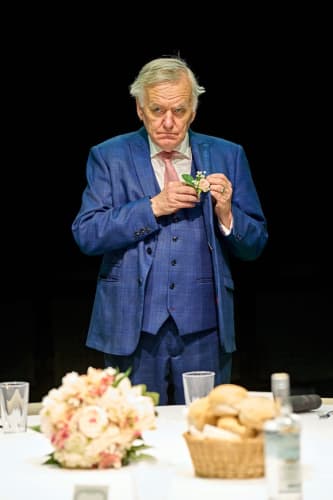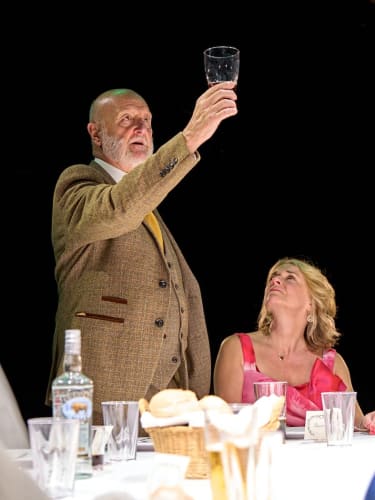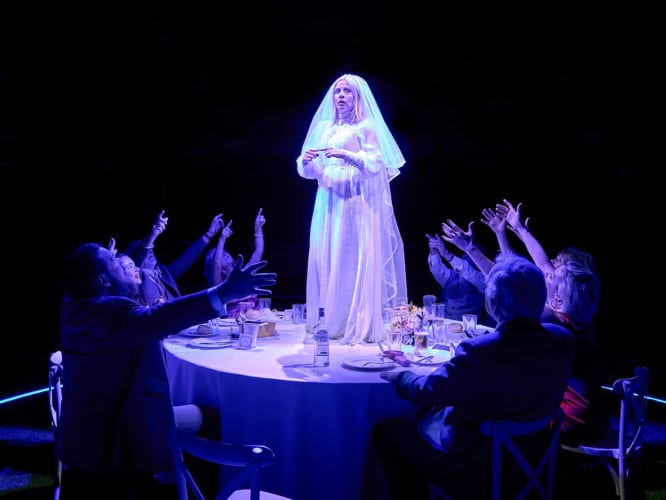Don’t you love a wedding? Well, you are supposed to and you should certainly enjoy this one, the marriage of Sylvia and Marek at Shirebrook on the Derbyshire border with Notts. It is a former mining town in an area dramatist Beth Steel knows well and where she has set previous plays.
Men in Sylvia’s family were miners, but where the pit once was, a vast warehouse and distribution centre was built staffed mostly by workers from Eastern Europe. This is all spelled out in the programme, but this isn’t an overtly political play about de-industrialisation, though the history is there in the background and sometimes surfaces.
It is play about family: the love, the squabbles, the hopes, the disappointments and the rivalry all contained in a single day; a day that, as Sylvia tells her new husband as they have their first row, “is supposed to be the happiest day of your life”.
It is played in the round, on a green astroturf arena with a central revolve ringed by coloured light. A glitter ball overhead is a promise of sparkle and dancing, but things start with Sylvia (Sinéad Matthews) and sisters Maggie (Lisa McGillis) and Hazel (Lucy Black) and Hazel’s eldest daughter Leanne (Ruby Stokes) doing their hair and their make-up and the banter between them, while their widower father Tony (Alan Williams) is upstairs getting suited.
Steel has an excellent ear that captures the women’s lively humour and the laughs get louder with the arrival of Tony’s brother’s wife Aunty Carol (Lorraine Ashbourne). She comes equipped with a specially bought flamboyant hat and an outspoken, tart tongue. When Sylvia can’t squeeze into the wedding dress that fitted when she first bought it, Carol chips in with, “have you had a poo?”
Bridegroom Marek is Polish, a pre-Brexit economic migrant who has started his own business. He met Sylvia when his van broke down and she stopped to see if he needed help. The family seem to accept him, but is that just on the surface? Marc Wootton makes him gentle and likeable (and handles a furtive bonk into the bargain), but we learn less about his life. To us, as to the family, he stays the outsider.
Till the Stars Come Down leaves out the the ceremony. It jumps from nearly leaving the confetti at home straight to the wedding reception, Aunty Carol switching the name cards on the top table, father-in-law Tony and Marek both touchingly nervous at making their speeches. It is there, as the wine and the vodka kick in, that things start to go wrong and we learn the details of personal stories. Derek Riddell’s John wanting a love that he can’t have, Tony still not speaking to the brother who crossed a picket line back in Thatcher’s day, and there’s a fight too when fourteen-year-old Leanne nearly turns everything into a tragedy. But, as someone says, “it wouldn’t be a wedding without a fight.”
Into this melange of the movingly raw and the laugh out loud, Steel introduces stylised theatricality when Sylvia stops time for a particular moment and when Uncle Pete arranges the family like a human orrery with them circling around each other to mark their relationships. Bijan Sheibani’s direction welds it all together making it a delight without blunting its political point.
When the revolve begins to turn slowly, Paule Constable’s lighting makes a colour change or sound designer Gareth Fry uses a piece of Vivaldi, it all seems perfectly apposite and these people recognisably real.
